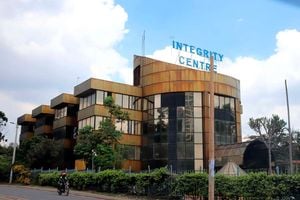Education should not be a means to an end

Many graduates struggle to find employment, leading to frustration and disillusionment.
The government invests heavily in education, ensuring it forms the bedrock of national development. From free primary and secondary education to the administration of the Kenya National Examinations Council exams, the country has made substantial strides in creating opportunities for all learners to access quality education.
The government also allocates resources to guarantee the credibility of the national exams, with stringent security measures in place to prevent cheating and malpractice. This commitment underscores the importance of exams as a gateway to further education and career opportunities.
However, while much attention and resources are directed towards ensuring students successfully complete their education, an equally pressing issue arises: the absorption of graduates into the job market.
Education, while crucial, should not be viewed as a stepping stone but as part of a holistic process where the ultimate goal is to equip citizens for meaningful participation in the economy.
As it stands, many graduates struggle to find employment, leading to an overwhelming sense of frustration and disillusionment.
The government should replicate the investment it makes in education and the success of examinations in creating opportunities for graduates in the workplace.
Just as meticulous planning and resources are funnelled into ensuring the success of the national exams, similar effort should be directed towards ensuring graduates do not end up in a stagnant job market. Education must not be a means to an end—where the journey concludes with graduation—but a pathway to sustainable livelihoods.
Just as teachers are periodically recruited through the Teachers Service Commission, ensuring a continuous stream of employment for educators, similar strategies should be applied to other professions.
There must be systems to guarantee that graduates from all sectors—whether engineering, healthcare, agriculture, or IT—are absorbed in a timely manner. This could be achieved through a commission charged with ensuring a certain quota of professionals are hired annually.
Such an initiative would not only reduce the alarming joblessness but also motivate students and graduates to pursue their careers with confidence that opportunities await. All organisations should have annual targets for recruiting new employees.
Owino Nyakiti, Migori




